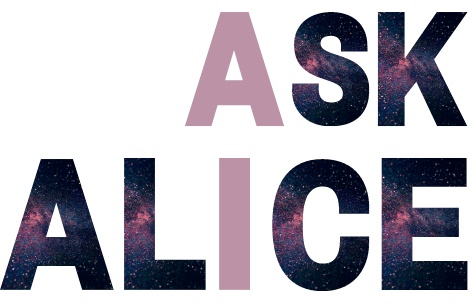As artificial intelligence continues reshaping organizational structures and decision-making processes, AI governance certification has emerged as a critical framework for ensuring responsible AI deployment. Business leaders must now navigate complex ethical considerations, regulatory requirements, and technical standards to maintain trust and compliance in their AI initiatives. This certification process, while relatively new, has become the gold standard for organizations seeking to demonstrate their commitment to responsible AI development and implementation. By establishing clear protocols for AI system oversight, risk management, and ethical guidelines, certified organizations gain a competitive advantage while protecting stakeholders and maintaining public trust. For technology leaders and decision-makers, understanding and implementing AI governance certification isn’t just about compliance—it’s about future-proofing their organizations and establishing themselves as responsible leaders in the AI revolution. The systematic approach to AI governance certification provides a clear roadmap for organizations to assess, implement, and maintain ethical AI practices while driving innovation and growth.

Why AI Governance Certification Matters Now
Rising AI Risks in Business
As AI systems become more integrated into business operations, organizations face unprecedented risks without proper governance frameworks. From biased decision-making algorithms to data privacy breaches, the potential pitfalls are significant and can severely impact both reputation and bottom line.
One of the most pressing concerns is the lack of transparency in AI systems. When organizations deploy AI solutions without adequate oversight, they often struggle to explain how decisions are made, leading to accountability issues and potential legal complications. This “black box” problem becomes particularly challenging when AI affects customer service, hiring practices, or financial decisions.
Data security represents another critical risk area. Without proper governance, companies may inadvertently expose sensitive information or fail to comply with data protection regulations like GDPR. The financial implications of such breaches can be devastating, with fines reaching millions of dollars.
Ethical concerns also loom large. Unmonitored AI systems might perpetuate existing biases or make decisions that conflict with company values and social responsibilities. Additionally, the rapid pace of AI development means that organizations without proper governance structures may struggle to keep up with best practices and regulatory requirements, potentially falling behind competitors who implement robust AI governance frameworks.
Regulatory Compliance Requirements
The landscape of AI regulation is rapidly evolving, with several jurisdictions introducing mandatory requirements for AI governance structures. The European Union’s AI Act stands at the forefront, requiring organizations developing or deploying high-risk AI systems to implement comprehensive governance frameworks and obtain certification. This regulation particularly impacts sectors like healthcare, finance, and public services.
In the United States, while federal regulations are still emerging, state-level requirements like New York City’s AI bias audit law and California’s automated decision system regulations are setting new standards for AI governance. Organizations must demonstrate transparent AI practices and maintain proper documentation of their AI systems.
Other significant regulations include China’s Internet Information Service Algorithmic Recommendation Management Provisions and Canada’s Artificial Intelligence and Data Act (AIDA), both mandating formal oversight of AI systems. These regulations typically require organizations to establish clear accountability structures, conduct regular risk assessments, and maintain detailed documentation of AI development and deployment processes.
To maintain compliance, organizations are increasingly seeking AI governance certification as a proactive measure, ensuring they meet current requirements while preparing for upcoming regulations.
Key Components of AI Governance Certification

Ethics and Responsibility Frameworks
AI governance certification programs emphasize core ethical principles that guide responsible AI development and deployment. These frameworks typically focus on five fundamental pillars: fairness, transparency, accountability, privacy, and safety.
The fairness principle ensures AI systems treat all individuals equitably, avoiding bias in decision-making processes. Organizations must demonstrate their commitment to identifying and mitigating algorithmic bias through regular assessments and corrections.
Transparency frameworks require clear documentation of AI systems, including their purpose, limitations, and decision-making processes. This includes maintaining detailed records of training data sources, model architectures, and potential impact assessments.
Accountability guidelines establish clear roles and responsibilities within organizations. This includes designated oversight committees, regular audits, and mechanisms for addressing AI-related concerns or incidents. Certification programs often require organizations to implement robust incident response procedures and establish clear chains of command.
Privacy protection forms a crucial component, with frameworks addressing data collection, storage, and usage practices. Organizations must demonstrate compliance with relevant data protection regulations and implement strong security measures to protect sensitive information.
Safety protocols focus on risk assessment and mitigation strategies. This includes regular testing procedures, fail-safe mechanisms, and continuous monitoring of AI systems to prevent potential harm to users or stakeholders.
These ethical frameworks are regularly updated to address emerging challenges and technological advances, ensuring certification remains relevant and effective in promoting responsible AI development.
Risk Management Protocols
Effective risk management is a cornerstone of AI governance certification, requiring systematic protocols to identify, assess, and mitigate potential risks. Organizations must establish clear procedures that align with industry standards while supporting data-driven decision making.
The protocol typically begins with a comprehensive risk assessment framework that evaluates three key areas: technical risks (such as algorithm bias and system failures), operational risks (including data privacy breaches and security vulnerabilities), and ethical risks (concerning fairness and transparency in AI operations).
Organizations must implement continuous monitoring systems that track AI performance metrics, data quality, and system behavior. This includes establishing early warning indicators and automated alerts for potential issues. Regular audits should be conducted to ensure compliance with established protocols and identify areas for improvement.
A critical component is the incident response plan, which outlines specific steps to address various risk scenarios. This includes clear escalation procedures, designated response teams, and documented recovery processes. Regular training sessions ensure that all team members understand their roles in risk management.
Documentation plays a vital role, with detailed logs of risk assessments, mitigation actions, and incident responses maintained for audit purposes. This creates a valuable knowledge base for future risk prevention and demonstrates compliance with certification requirements.
Compliance and Documentation Standards
Organizations pursuing AI governance certification must maintain comprehensive documentation that demonstrates their adherence to established standards and best practices. This documentation typically includes detailed records of AI system development, testing procedures, risk assessments, and ongoing monitoring protocols.
Key documentation requirements include AI model specifications, data governance policies, ethical guidelines, and incident response procedures. Organizations need to maintain up-to-date records of algorithm training data, model validation results, and regular audit findings. These records should be easily accessible and organized in a standardized format that facilitates regular review and updates.
Compliance processes typically involve regular internal audits, external assessments, and continuous monitoring of AI systems. Organizations must establish clear procedures for reporting and addressing potential issues, including bias detection, security vulnerabilities, and performance degradation. This includes maintaining logs of system changes, user interactions, and any incidents or anomalies.
Documentation should also cover employee training records, stakeholder communications, and evidence of ongoing compliance with relevant regulations such as GDPR or industry-specific requirements. Organizations need to demonstrate their commitment to transparency by maintaining clear documentation of how AI decisions are made and explaining these processes to stakeholders when required.
To ensure successful certification, organizations should implement a systematic approach to documentation management, including version control, regular updates, and secure storage of all relevant materials. This helps demonstrate due diligence and facilitates smooth certification renewals.
Implementation Benefits and ROI
Competitive Advantages
AI governance certification provides organizations with significant competitive advantages in today’s rapidly evolving technological landscape. Companies that obtain these certifications demonstrate their commitment to responsible AI practices, immediately setting themselves apart from competitors who haven’t made this investment. This certification serves as a powerful differentiator, particularly when bidding for contracts or engaging with partners who prioritize ethical AI implementation.
One of the most valuable benefits is the enhanced customer trust and satisfaction that comes with certification. In an era where consumers are increasingly concerned about how their data is used and protected, certified organizations can confidently showcase their adherence to established standards and best practices. This transparency builds credibility and often leads to stronger customer relationships and increased market share.
Certification also positions organizations as industry leaders in responsible AI adoption. It signals to stakeholders, including investors, partners, and customers, that the organization takes AI governance seriously and has implemented robust frameworks to manage AI-related risks. This leadership position often translates into preferential treatment in partnerships, increased business opportunities, and better access to talent who want to work with organizations committed to ethical AI practices.
Moreover, certified organizations often experience improved operational efficiency and reduced compliance risks, as the certification process helps establish clear protocols and governance structures that streamline AI-related decision-making and risk management.
Risk Reduction Metrics
AI governance certification brings measurable benefits to risk management and compliance costs, making it easier for organizations to track and optimize their AI-related investments. Companies that implement certified governance frameworks typically see a 25-40% reduction in AI-related incidents and compliance violations within the first year.
Key metrics that demonstrate the effectiveness of AI governance certification include decreased incident response times, reduced audit findings, and lower compliance-related expenses. Organizations report an average 30% reduction in the time spent addressing AI system issues and a 35% decrease in regulatory compliance costs.
Risk assessment efficiency improves significantly, with certified organizations able to identify and mitigate potential AI risks 40% faster than non-certified counterparts. This enhanced efficiency translates to an average annual saving of $150,000 to $300,000 for medium-sized enterprises.
The certification process also leads to better documentation and tracking of AI systems, resulting in a 45% improvement in audit readiness and a 50% reduction in time spent preparing for regulatory inspections. Organizations with certified AI governance frameworks report increased stakeholder confidence, with customer trust ratings improving by an average of 60%.
Regular monitoring and reporting become more structured under certification, enabling organizations to maintain clear metrics for continuous improvement. This systematic approach helps companies achieve an average 20% year-over-year reduction in AI-related operational risks while maintaining innovation capabilities.

Getting Started with Certification
Certification Options and Providers
Several reputable organizations offer AI governance certifications, each with its unique focus and approach. The International Association of Privacy Professionals (IAPP) provides a comprehensive AI Governance Professional certification that covers data protection, ethics, and regulatory compliance. This program is particularly valuable for professionals working in regulated industries.
The AI Governance Institute offers a specialized certification that emphasizes practical implementation of governance frameworks. Their program includes hands-on case studies and real-world scenarios, making it ideal for practitioners who need to apply governance principles immediately in their organizations.
Microsoft’s Azure AI Fundamentals certification, while broader in scope, includes significant coverage of AI governance principles and best practices within the context of cloud computing and enterprise AI deployment. This certification is well-suited for technical professionals who work with AI systems on a daily basis.
For those seeking a more academic approach, the MIT Sloan School of Management offers an AI in Business Strategy certification that includes modules on AI governance and ethics. This program is particularly beneficial for business leaders and strategic decision-makers.
The IEEE also provides a Professional Certificate Program in AI Ethics and Governance, which is globally recognized and focuses on the technical and ethical aspects of AI implementation. This certification is regularly updated to reflect the latest developments in AI technology and regulations.
When choosing a certification provider, consider factors such as industry recognition, curriculum relevance, and practical application components. Many of these programs offer flexible learning options, including online courses and self-paced study materials.
Preparation and Requirements
Before pursuing an AI governance certification, candidates should meet several key prerequisites and make thorough preparations. A bachelor’s degree in computer science, information technology, or a related field is typically recommended, though not always mandatory. Professional experience in AI implementation strategies or data management is highly valuable.
Candidates should possess a solid foundation in basic programming concepts, data analytics, and machine learning principles. Familiarity with popular AI frameworks and tools is essential, as is a working knowledge of data privacy regulations and ethical guidelines in AI deployment.
Most certification programs require:
– 2-3 years of relevant work experience
– Basic understanding of risk management principles
– Knowledge of regulatory compliance frameworks
– Proficiency in data protection standards
– Understanding of AI ethics and responsible AI practices
To prepare effectively, candidates should:
– Review current AI governance frameworks
– Study case studies of successful AI implementations
– Practice with governance tools and platforms
– Join professional AI communities and forums
– Complete recommended pre-certification courses
Many certification providers offer preparatory materials and practice tests. It’s advisable to allocate 3-6 months for thorough preparation, depending on your background and experience level. Some programs also require completing specific prerequisite courses before enrollment in the main certification track.
As AI continues to reshape the business landscape, obtaining AI governance certification has become a crucial step for organizations seeking to demonstrate their commitment to responsible AI deployment. This certification not only validates your AI practices but also builds trust with stakeholders and ensures compliance with evolving regulations. For businesses ready to take the next step, begin by assessing your current AI infrastructure, identifying gaps in governance protocols, and selecting an appropriate certification program that aligns with your industry requirements. Remember that certification is not just a one-time achievement but an ongoing journey of improvement and adaptation. By investing in AI governance certification today, you’re securing your organization’s future in the AI-driven world while contributing to the development of ethical and responsible AI practices across the industry.

